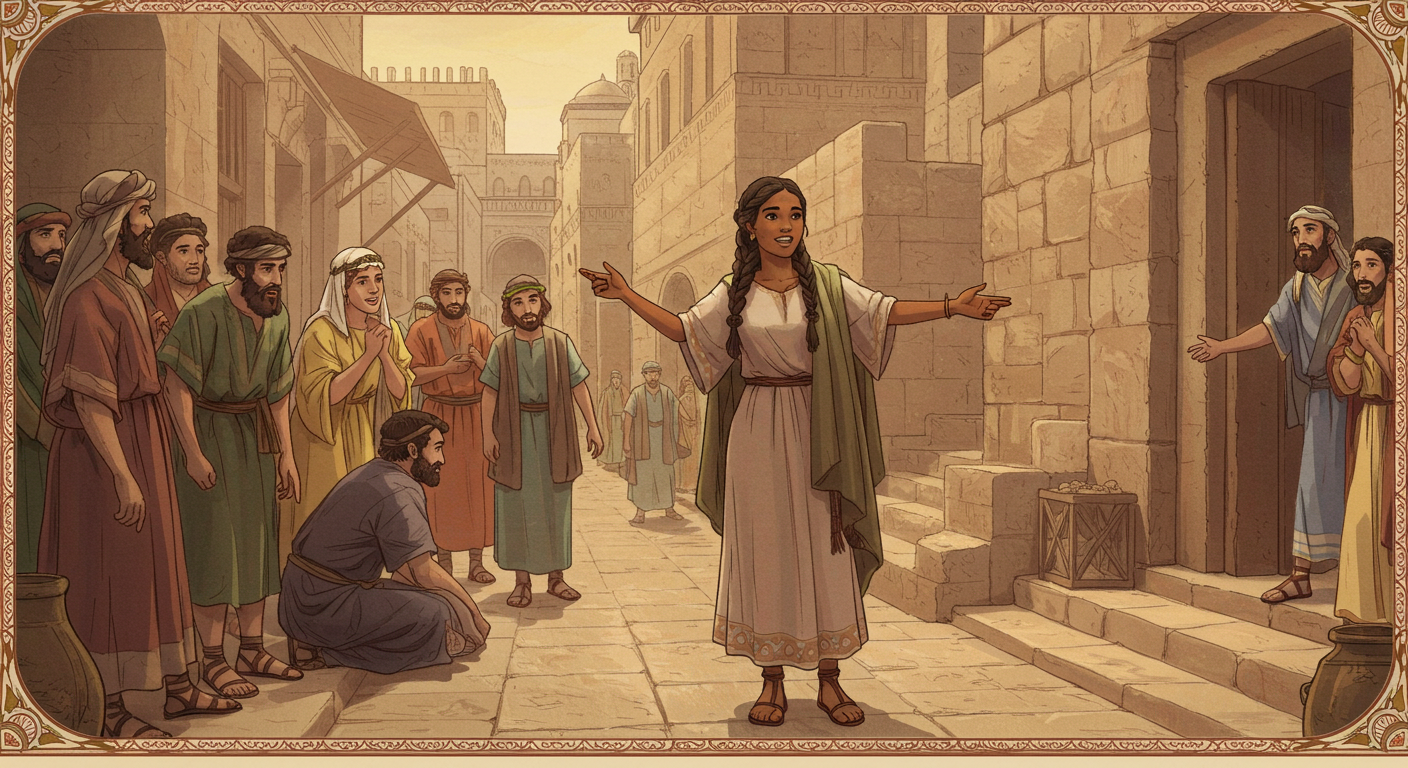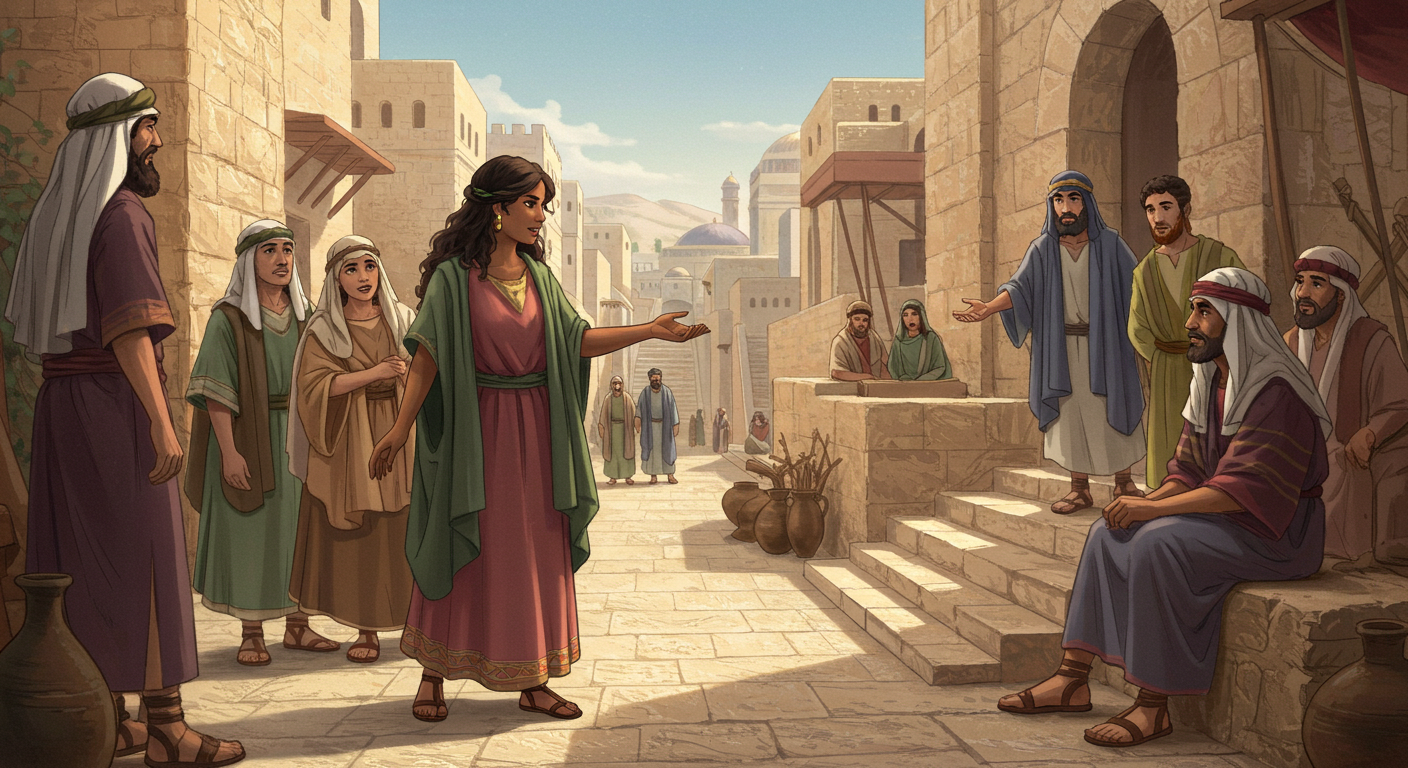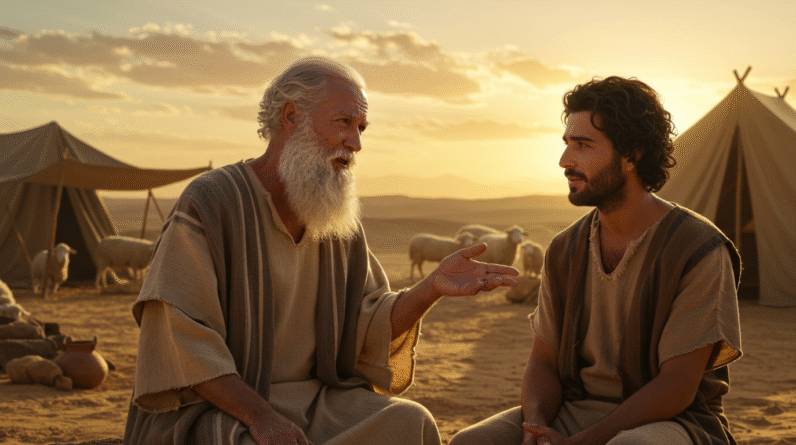Explore Rhoda’s pivotal yet overlooked role in Acts 12:12-15, revealing her faith and persistence. Discover lessons on recognizing and responding to divine acts.

The Unsung Heroine: Rhoda’s Role in Acts 12:12-15
Introduction
Imagine a quiet night interrupted by the symphony of whispered prayers. In a house teeming with hope and anticipation, enter Rhoda—an often-overlooked figure whose brief appearance in the Book of Acts highlights her in a pivotal moment of faith. Her introduction to the biblical narrative is both astonishing and heartwarming, touching on the collective hope and disbelief of early believers. Although Rhoda plays a seemingly minor role, her actions speak volumes about the vibrancy of faith and the sometimes incredulous human response to divine intervention. As a servant girl who recognized the voice of a delivered apostle, Rhoda’s moment captures a profound truth about recognizing and responding to God’s actions in everyday life (Acts 12:12-15).
Their Story in the Bible
Rhoda’s story unfolds during a time of great turmoil for the early Church. King Herod had seized Peter, planning to make an example of him after executing James, the brother of John. The air was thick with tension. As the church gathered in fervent prayer at Mary’s house—the mother of John Mark—it was a time marked by both desperation and faith.
As the apostle Peter found himself bound in chains between two soldiers, an angel of the Lord appeared, executing a miraculous jailbreak. Together, they passed unseen through multiple checkpoints until Peter found himself standing alone in the street. Undoubtedly amazed by his deliverance, Peter eventually made his way to Mary’s home, the center of gathered believers offering earnest prayers for his safety (Acts 12:5-11).
This is where Rhoda steps into the scene. Hearing Peter’s knock at the door, she approached and recognized his voice immediately. Overflowing with joy, Rhoda forgot to open the door for Peter. Instead, she rushed to the others, proclaiming the impossible: Peter was free and standing outside. Yet, rather than responding with the joy one might expect, the praying believers dismissed her exuberance, suggesting she was mad or had seen a ghost. Rhoda’s persistence finally leading them to verify her claim, reinforcing the power of faith, even when the miraculous defies reason (Acts 12:12-15).
Lessons from Their Life
Rhoda’s story is brief but packed with lessons relevant to our lives today. Firstly, her story underscores the importance of recognition—of being attuned to the movements and voice of God in our daily lives. In a world cluttered with noise and distractions, perhaps we can learn from Rhoda’s ability to recognize what truly matters even amidst chaos.
Secondly, Rhoda’s tale is a reminder of the power of persistence. Despite the skepticism and dismissal she faced, her unwavering certainty persuaded others to believe. This teaches us about the influence of resolute faith and the impact one can have by standing firm in their convictions, regardless of doubt from others.
Lastly, the narrative invites us to reflect on the nature of prayer and belief. When the very outcome they prayed for was standing at the door, the initial response was disbelief. This highlights a universal tendency to act surprised when prayers are answered, challenging us to contemplate the strength and expectation behind our prayers.
Connection to Today’s World
In many ways, Rhoda’s story finds resonance in the lives of those navigating a world that often demands “proof” of faith. Imagine the modern-day applications: how often do we pray for change or intervention, only to respond with disbelief when those prayers are answered? Rhoda’s narrative encourages us to cultivate an expectant faith, embracing the assurances and surprises of a life lived in close contact with the divine.
Moreover, in a society keen on dismissing the voices of the young or seemingly insignificant, Rhoda’s prominence in the story serves as a potent reminder that faith and insight are not confined by age or status. Her initial reception mirrors the doubt faced by many who bring new perspectives or revelations. It is a gentle challenge to be open to possibilities that may initially seem improbable, leaning into faith and trust, no matter the source.

Key Bible Verse
“Peter knocked at the outer entrance, and a servant named Rhoda came to answer the door” (Acts 12:13). This verse captures the essence of anticipation and the heart of hope. It opens a scene where divine intervention and human disbelief interact. The knocking represents opportunity, answered prayers waiting to be embraced—and Rhoda stands as an intermediary who connects that miracle to the waiting hearts inside.
Thought-Provoking Question
As we reflect on Rhoda’s tale and its implications, consider this: When your prayers are answered, do you react with faith and recognition, as Rhoda did, or with disbelief, like the others in the house? This challenges us to align our hearts closer to expectant faith, always ready to recognize and respond to God’s workings in our lives.
Optional Add-Ons
Historical/Cultural Context
Understanding the backdrop of Rhoda’s story enriches the narrative. During this time, servants often held important roles within households, significantly participating in the daily operations and welfare of their communities. Rhoda’s position in Mary’s household denotes trust and responsibility. The fact that she recognized Peter’s voice suggests her deep involvement and connection with the early Christian community—a tight-knit group praying intently for Peter’s release.
Prayer
Let’s conclude with a simple prayer inspired by Rhoda’s unwavering belief and joy: “Lord, help me to recognize Your voice amidst the distractions of life. Grant me the faith to stand firm in my convictions and the courage to proclaim Your truths with joy and persistence. Amen.”







